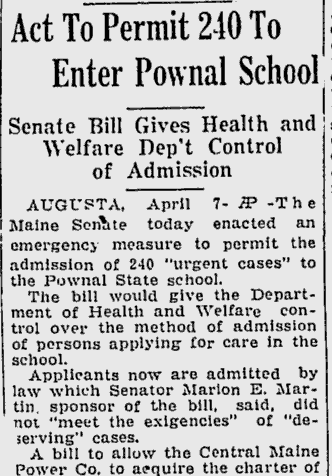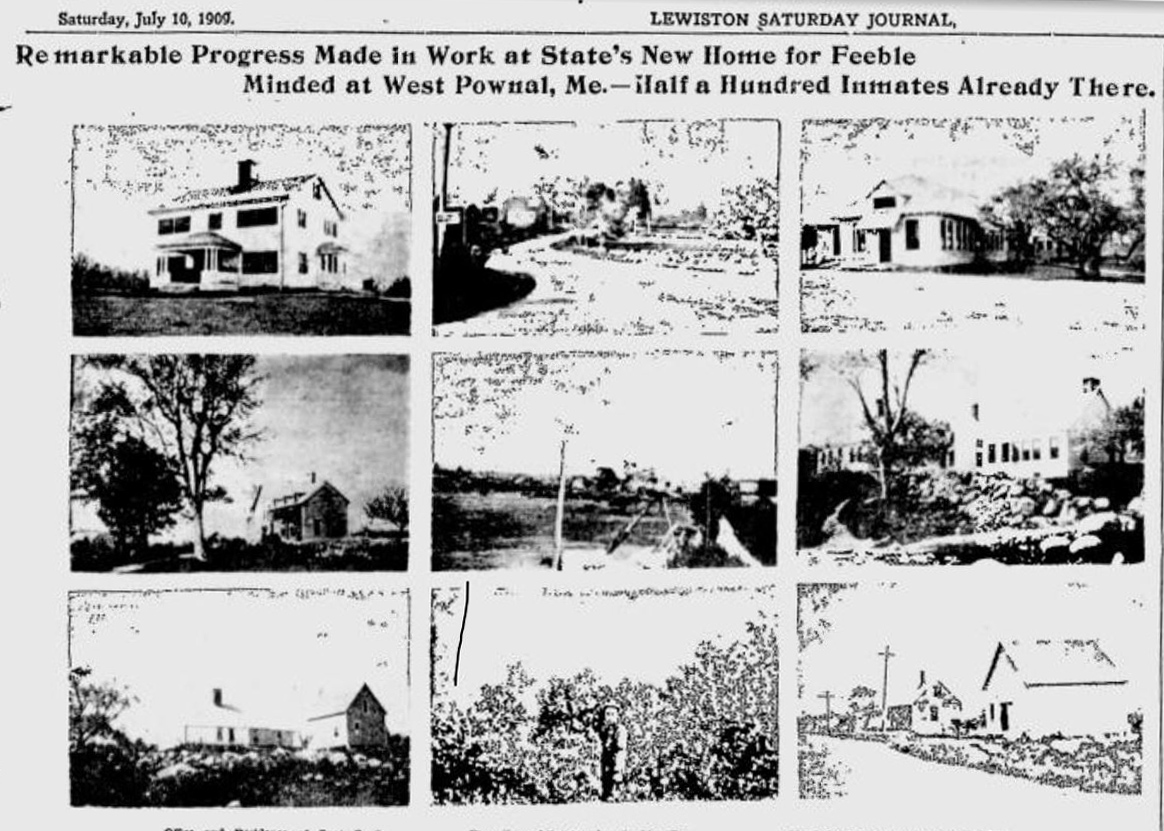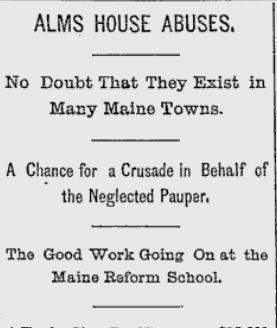The Maine Federation of Women's Clubs expressed concerns about conditions at state institutions and found overcrowding, staff shortages, and inadequate food and clothing.
While the patient population would peak in the 1930s at around 1,500, Superintendent Kupelian would continue to advocate for expanding the numbers of residents - asking the public to support funding for up to 9,000 total patients.

In 1938 came the first whispers of something more sinister, when a former Superior Court judge accused the institution of neglect.

While changes were being made to the administrative structures of Maine’s institutions, the Pownal State School was undergoing an expansion as well. An increase in beds and buildings was championed by a new superintendent, Dr. Stephen E. Vosburgh, who was hired in 1919 and served for 18 years.
Alongside blaming heredity for causing intellectual disabilities, those with such disabilities were demonized and blamed for all the ills in our society - women of “feeble mind” were said to be promiscuous - and of course would “breed” more generations of “defectives” with their loose morals.
Just six years after the institution opened, a headline announced "Care of Feeble-Minded Big Problem for Maine." The facility already had 255 people receiving care, with 160 on a waiting list.
![Lewiston Evening Journal, July 15, 1911 Newspaper Clipping from Lewiston Evening Journal, July 15, 1911 – Headline: Burn ‘Em Up Says Gov. Plaisted: Who Would Remove Malaga Island Natives to Institution. Body: The official visit to Malaga Island made by Gov. Plaisted, Council and guests on Friday, may lead to some radical measure being taken with the residents of that more or less unsavory place. The visit was promoted by Hon. E.B. Winslow of Portland, and the party wore his guests for the day. He had chartered the steamer Machigonne and had provided in every way for the comfort of the party which was made up as follows: Governor Frederick W. Plaisted, Mrs. Plaisted, Miss Gertrude Plaisted, Mrs. Elma Woodbury of New York, Hon. And Mrs. Charles L. Turgeon of Auburn, Hon. And Mrs. Weston Lewis of Gardiner, Hon. and Mrs. C.G. [cut off]](https://shadowsofpineland.org/wp-content/uploads/2021/07/1911-July-15-Lewiston-Evening-Journal.png)
Maine’s Malaga Island in the late-19th and early-20th centuries was inhabited by a mixed-race community of fishermen and families. In the early 1900's, fear and racism turned public opinion against the people of Malaga, and many inhabitants of that island were sent to the School for the Feeble Minded.
Only three years after the Maine School for the Feeble-Minded opened, a visiting committee identified problems.

"Remarkable Progress Made In Work At State's New Home for Feeble Minded at West Pownal," a newspaper headline announced on July 10, 1909.

By the late 19th and early 20th century, there were rising calls for a separate institution for those who were called the “feeble minded”.
